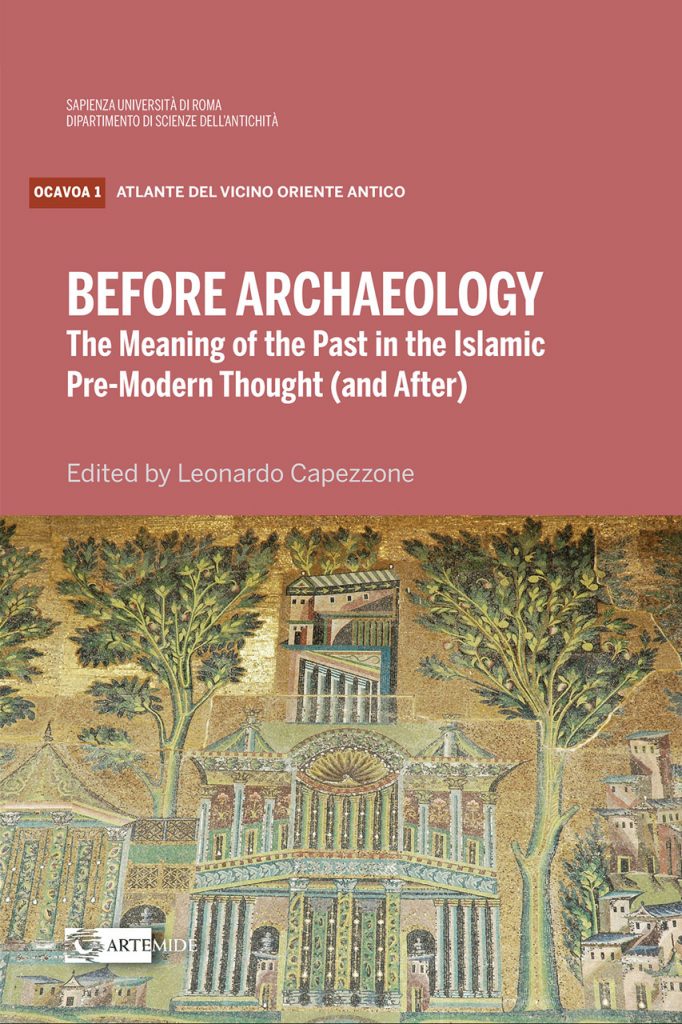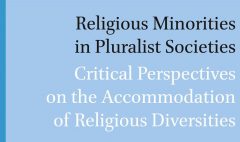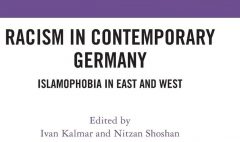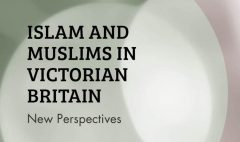Before Archaeology: The Meaning of the Past in the Islamic Pre-Modern Thought (and After)
January 20, 2021 2023-10-08 8:31Before Archaeology: The Meaning of the Past in the Islamic Pre-Modern Thought (and After)
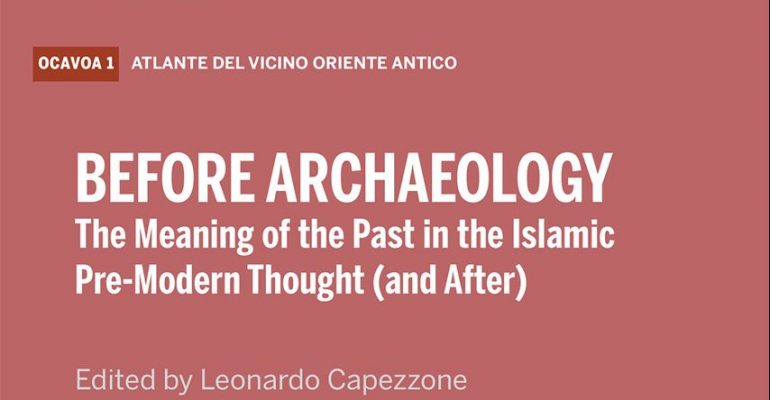
Before Archaeology: The Meaning of the Past in the Islamic Pre-Modern Thought (and After)
Edited by Leonardo Capezzone
Publisher: Artemide Edizioni (January 20, 2021)
This volume aims to explore some aspects of the multifaceted modalities with which classical and pre-modern Islamic thought (with two final glances at modern and contemporary times) has imagined and narrated the past, entering into a dialogical relation with its questioning nature, developing an intellectual and interpretative attitude to the past from different points of view – literary, historical, philological, political, religious, or at the level of collective imagination –, and articulating a complex discourse on antiquity, its memory and its persistence in the cultural and geographical spaces of the Muslim Near East.
Beyond the political and cultural theme of continuity with the past – understood as an ideal, if static, time of classicism to be retrieved – which has long innervated the research paradigm on the relationship of medieval Islamic culture with the past, a field of investigation still remains largely unexplored, except for isolated studies dedicated to individual places of particular resonance.
Much remains to be said on the different ways by which the past appears in the form of object (the ruins, the monument, the inscription); how it shapes, or is concealed in, the landscape; how the past and the discovery of the antique (as a form of written knowledge) becomes a substantial tool in order to justify, vindicate, legitimize or confirm the victory of Islam as the ultimate religion.
The essays collected in this volume investigate precisely the ways in which the historic culture of the pre-modern Arabic Islamic world constructed epistemic frameworks in order to understand and narrate the past, utilizing categories and methods (sometimes in conflict with each other) that sought to define the conditions of truth of the historic narrative and to control the conditions of the use of sources.
Source: Artemide Edizioni


